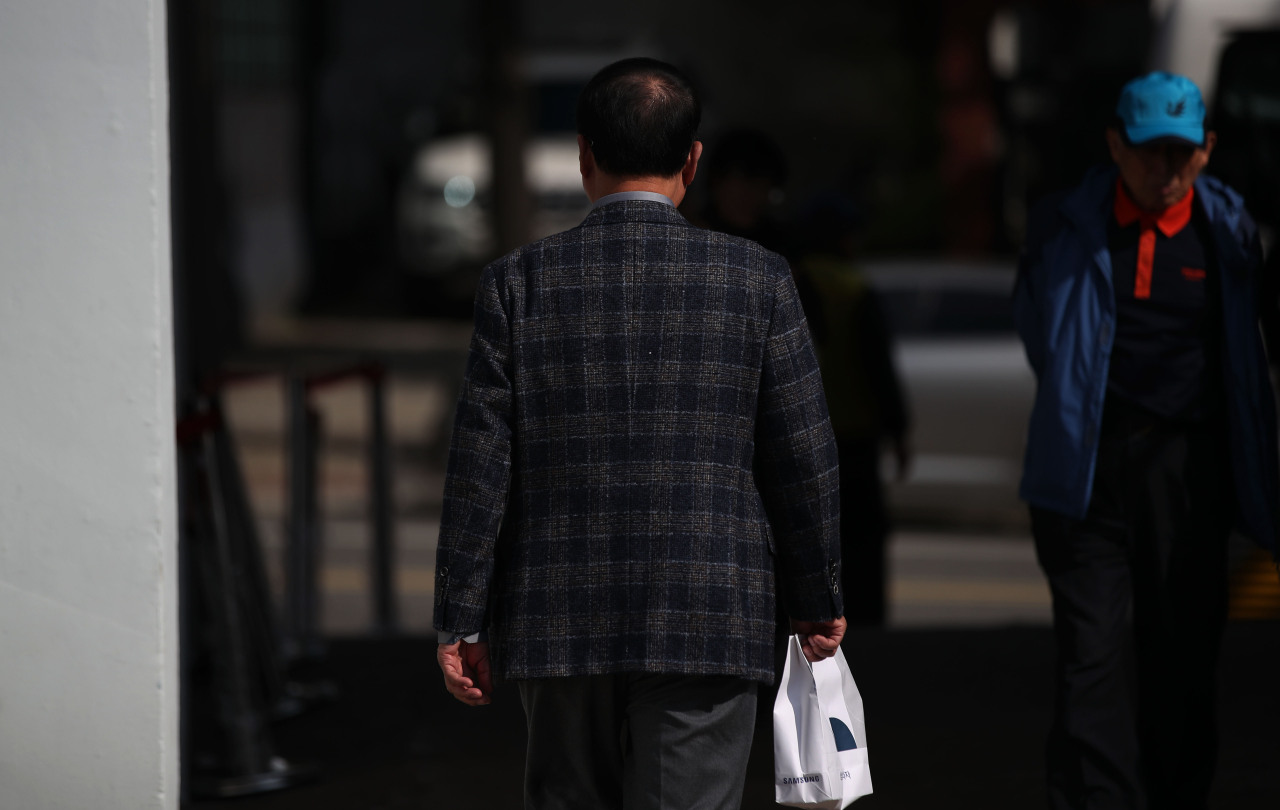S. Korea’s target date fund market grows with aging population
By Jung Min-kyungPublished : Oct. 22, 2019 - 15:47
As South Korea’s rapidly aging population seeks simple solutions for retirement investments, the nation’s target-date fund market has been growing at a rapid pace in recent years, data compiled by The Korea Herald showed Tuesday.
Target-date funds are usually long-term investments and classes of mutual funds that rebalance the ratio of different assets in the investor’s portfolio over time. High-risk assets such as stocks account for the larger portion of the investment when the investor is younger. The investment would then lean heavier to bonds as the investor ages, allowing the investor to automatically manage a more conservative portfolio.
Target-date funds are usually long-term investments and classes of mutual funds that rebalance the ratio of different assets in the investor’s portfolio over time. High-risk assets such as stocks account for the larger portion of the investment when the investor is younger. The investment would then lean heavier to bonds as the investor ages, allowing the investor to automatically manage a more conservative portfolio.

According to Mirae Asset Global Investments, the wealth management unit of Mirae Asset Financial Group, its target-date fund attracted a record net inflow of 1.1 trillion won ($940 billion) from its clients as of Monday.
This marks the first time that a South Korean asset manager has attracted more than 1 trillion won from target-date funds.
Mirae Asset Global has been managing 11 different target-date fund selections since its first launch in 2011. Its largest target-date fund, named Mirae Asset Strategic Allocation TDF 2025 with 341 billion won in net assets, has been maintaining an expected return of 16.57 percent since March 2017.
Samsung Asset Management, Samsung Group’s wealth management unit, is a Mirae Asset Global’s strong market competitor. It is currently managing nine different target-date funds that have attracted a combined net inflow of 970 billion won.
Including the two, there are 10 local asset management firms that have made forays into the market since Mirae Asset’s launch of the nation’s first target-date fund in 2011.
Among them, three have now managed to attract a net inflow of more than 100 billion won, respectively, for their target-date fund series.
There are moves within the political sector to reform private pensions and introduce a default option to retirement pensions. The default option will allow active involvement of local financial institutions in wealth management, according to industry watchers.
The nation’s occupational pension funds yielded a meager 1.01 percent return on average last year, according to the watchdog Financial Supervisory Service. The average returns over the last five years came at 1.88 percent, with experts citing conservative investments that merely guarantee principal and interest behind the weak returns.
Private pension funds held nearly 190 trillion won in assets under management, the FSS said.
“The US target-date fund market was able to grow on introduction of default investment settings and it seems South Korean wealth management firms are building solid foundations,” said Oh Gwang-young, an analyst at Shinyoung Securities.
By Jung Min-kyung (mkjung@heraldcorp.com)


![[Exclusive] Korean military set to ban iPhones over 'security' concerns](http://res.heraldm.com/phpwas/restmb_idxmake.php?idx=644&simg=/content/image/2024/04/23/20240423050599_0.jpg&u=20240423183955)

![[Graphic News] 77% of young Koreans still financially dependent](http://res.heraldm.com/phpwas/restmb_idxmake.php?idx=644&simg=/content/image/2024/04/22/20240422050762_0.gif&u=)



![[Pressure points] Leggings in public: Fashion statement or social faux pas?](http://res.heraldm.com/phpwas/restmb_idxmake.php?idx=644&simg=/content/image/2024/04/23/20240423050669_0.jpg&u=)










